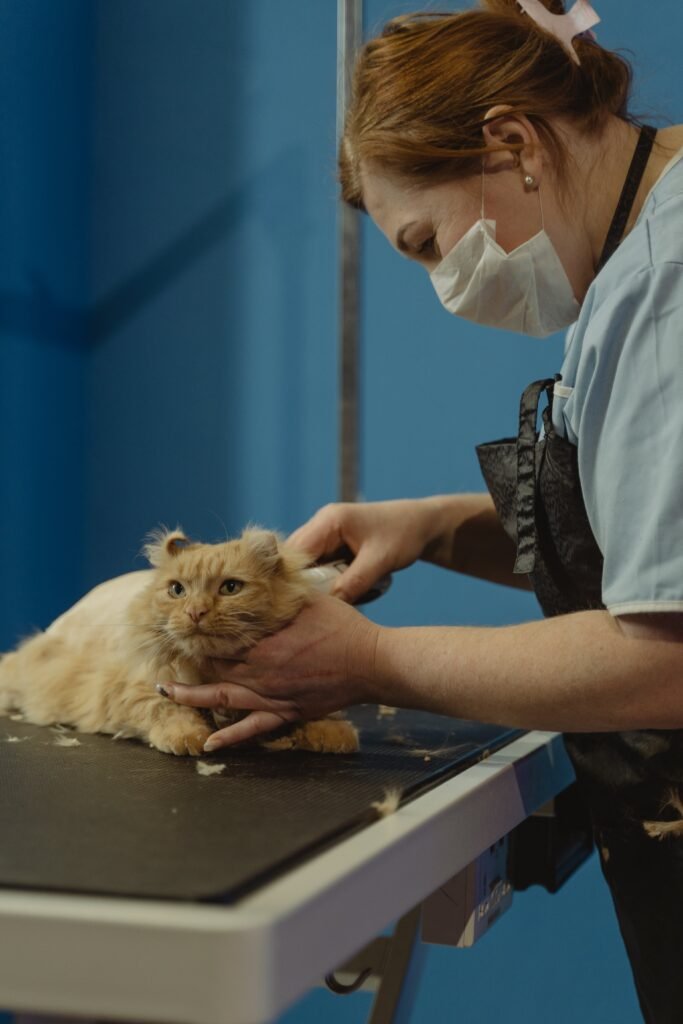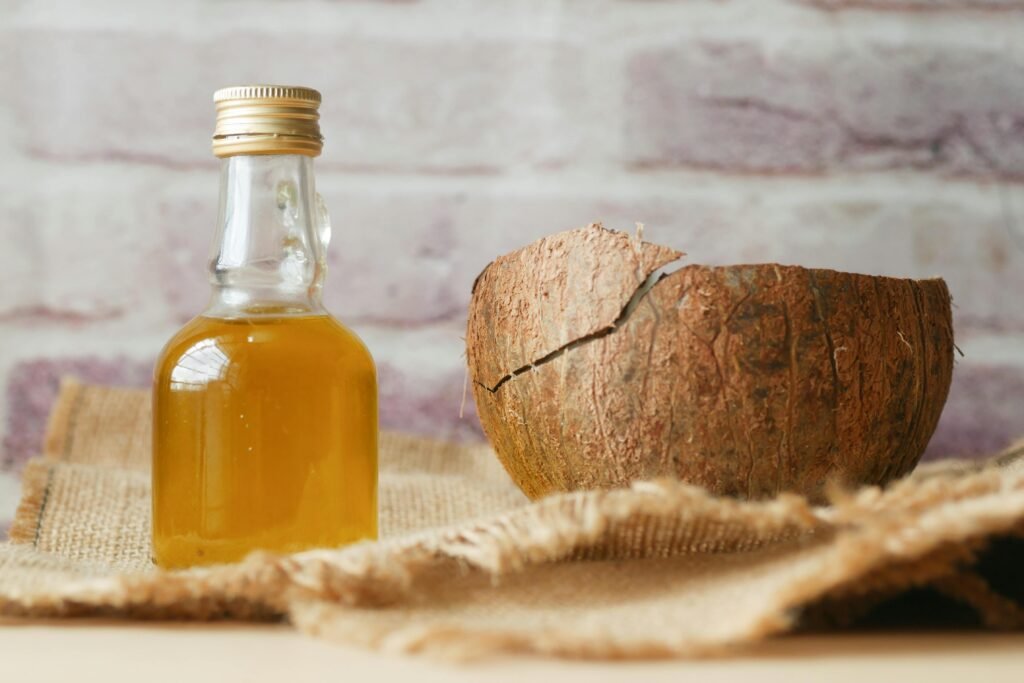If you’re a cat owner, you’ve probably wondered can cats eat Mushrooms if certain human foods, like mushrooms, are safe for your cat. Cats are known for being curious creatures, and sometimes they’ll try to nibble on something they shouldn’t. But can cats eat mushrooms safely, or should they be kept far away from them? In this post, we’ll explore whether mushrooms are safe for cats, the types of mushrooms that can be dangerous, and what to do if your cat eats one.
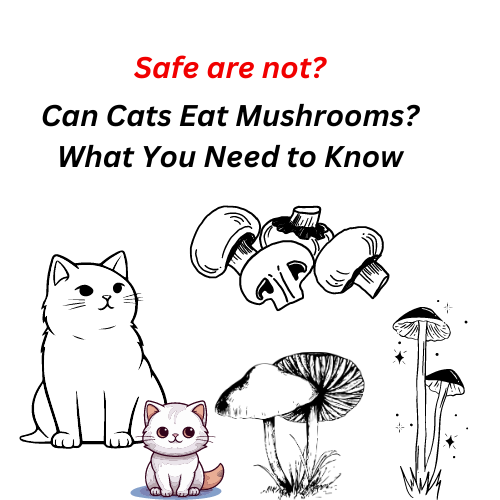
Are Mushrooms Safe for Cats?
Can Cats Eat Mushrooms: The answer depends on the type of mushroom. Store-bought mushrooms, such as button or portobello mushrooms, are generally considered safe for cats in small amounts. However, wild mushrooms can be extremely dangerous, and many are toxic to both cats and humans.
Even though some edible mushrooms are not harmful, it’s still a good idea to be cautious. Cats don’t need mushrooms in their diet, and there’s no strong benefit to giving them mushrooms regularly.

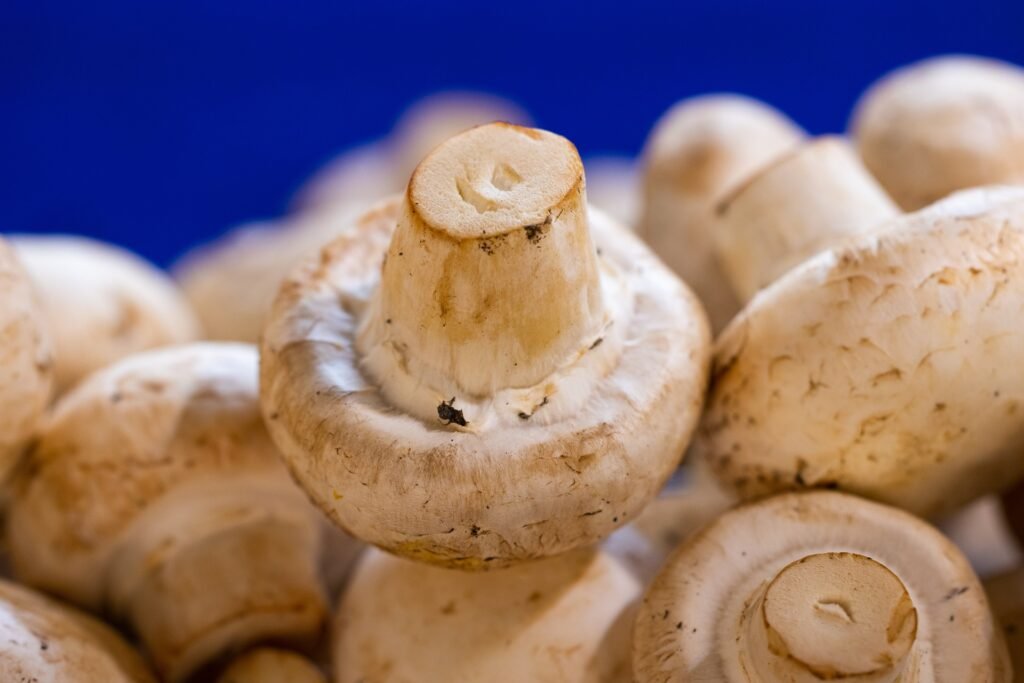
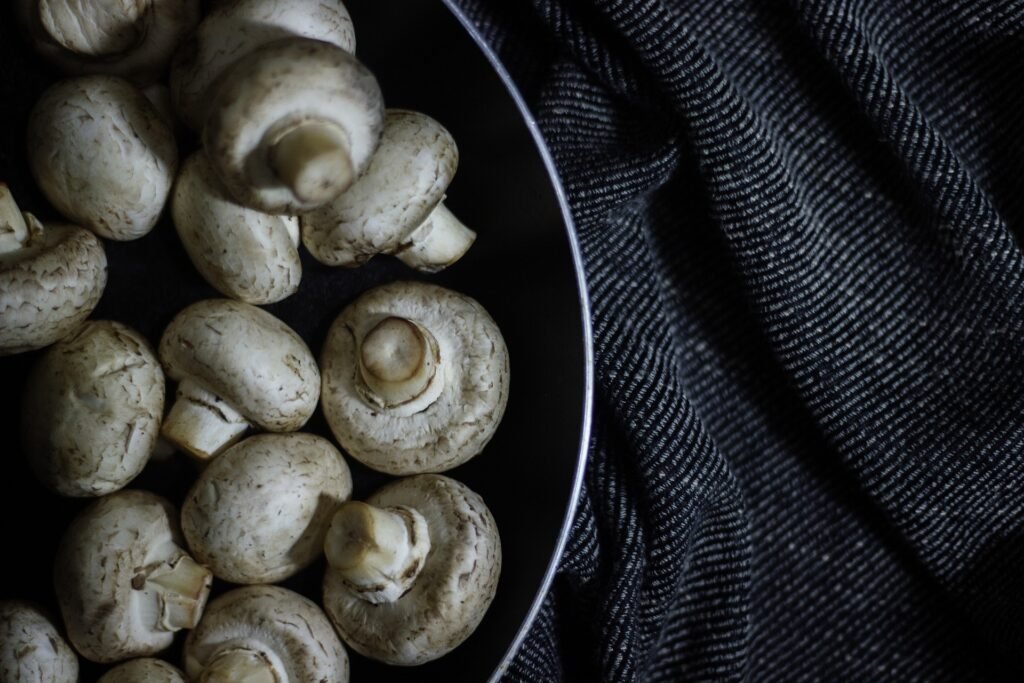
Why Cats Are Attracted to Mushrooms
Cats are often drawn to mushrooms because of their smell and texture. Mushrooms have a strong earthy scent that can attract curious cats. Some cats may even be drawn to the umami flavor found in mushrooms, which can mimic the taste of meat or protein.
However, just because they’re curious doesn’t mean mushrooms are a healthy snack for your cat.
Types of Mushrooms Cats Can Eat
If you’re wondering if you can share a bit of your dinner with your cat, certain mushrooms like button mushrooms, shiitake, or portobello can be safe if they’re cooked and given in very small amounts. Mushrooms should never be seasoned or cooked with ingredients like garlic or onions, which are toxic to cats.
It’s also important to note that while these types of mushrooms are safe, they should not become a regular part of your cat’s diet. Cats don’t need mushrooms for their nutritional health.
Types of Mushrooms That Are Dangerous for Cats
While some store-bought mushrooms may be safe, wild mushrooms can be deadly. Mushrooms like the Death Cap (Amanita phalloides) and other wild species are highly toxic to cats and can cause severe poisoning.
Here are some of the toxic mushrooms to watch out for:
- Death Cap (Amanita phalloides)
- False Morel (Gyromitra species)
- Autumn Skullcap (Galerina marginata)
- Fly Agaric (Amanita muscaria)
These wild mushrooms can cause life-threatening symptoms in cats if consumed, so it’s crucial to prevent your cat from coming into contact with them.

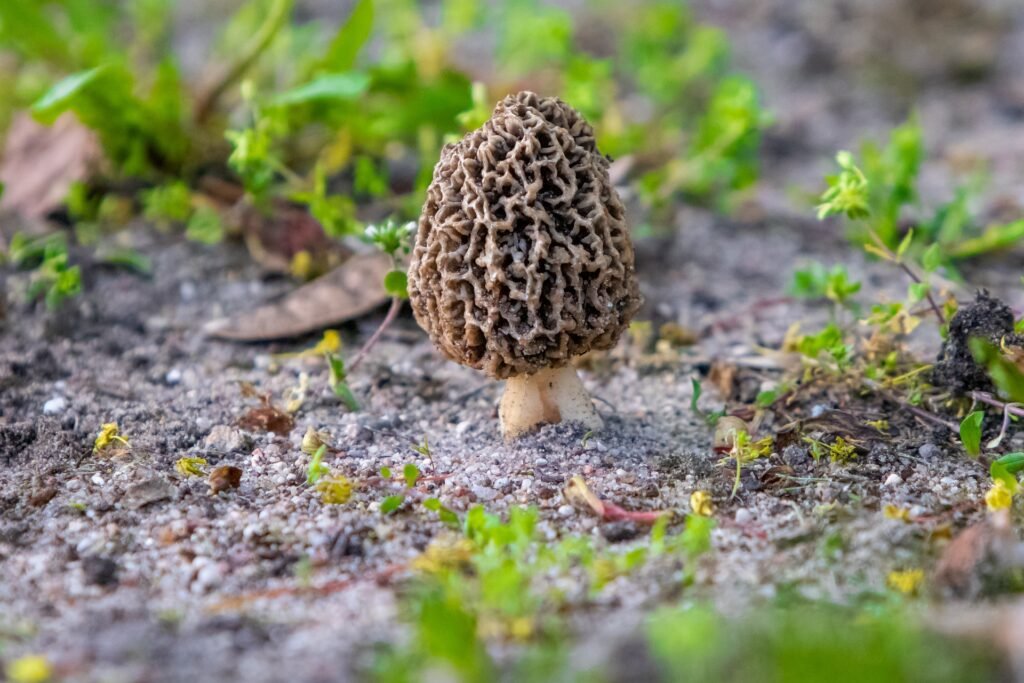
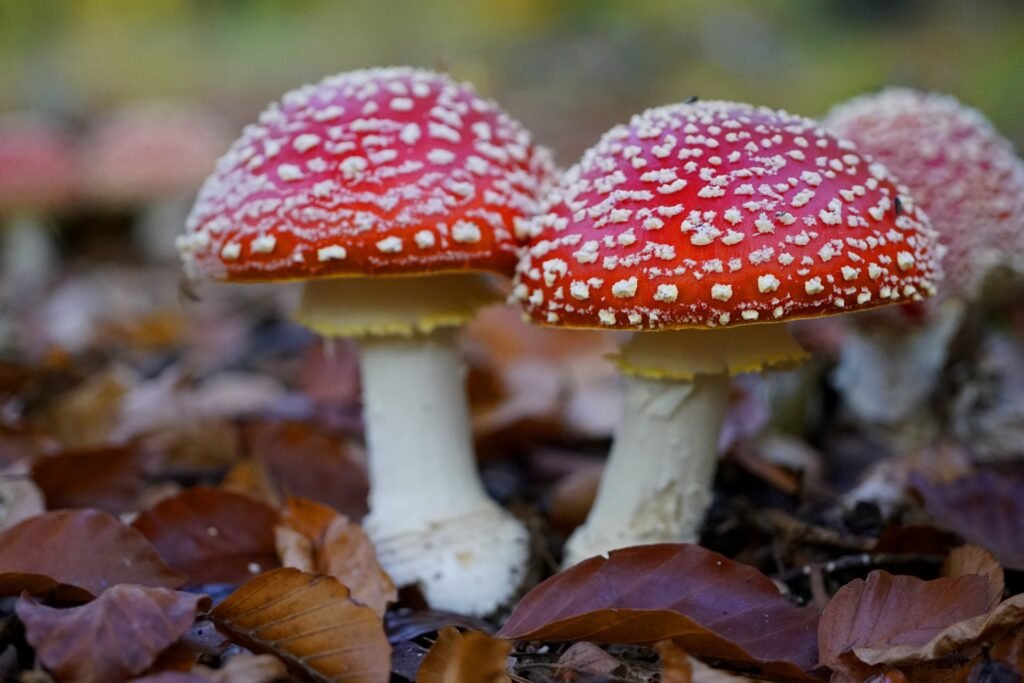
Signs of Mushroom Poisoning in Cats
If your cat eats a toxic mushroom, symptoms of poisoning can appear quickly. Here are some signs to watch for:
- Vomiting and diarrhea: Digestive upset is one of the first signs of mushroom poisoning.
- Lethargy and weakness: Your cat may become unusually tired or weak.
- Tremors or seizures: In more severe cases, your cat may experience muscle tremors or seizures.
What to Do If Your Cat Eats a Wild Mushroom
If you suspect your cat has eaten a wild mushroom, act quickly:
- Call your vet immediately: Time is critical when it comes to mushroom poisoning.
- Collect a sample of the mushroom: If possible, take a sample of the mushroom to show your vet. This can help them identify the type of mushroom and choose the best treatment.
- Don’t try to induce vomiting: Always wait for professional advice before taking any action.
Treatment will vary depending on the type of mushroom and the symptoms, but your vet may administer activated charcoal to absorb the toxins or provide fluids and medication to support your cat’s recovery.
Can Mushrooms Be a Healthy Treat for Cats?
Mushrooms do contain some nutrients like vitamins and antioxidants, but the risks outweigh the benefits when it comes to feeding them to cats. Cats are obligate carnivores, which means they get most of their nutrition from animal-based proteins. While a small piece of a cooked, store-bought mushroom won’t harm them, there’s no real reason to make it a regular part of their diet.
Alternatives to Mushrooms for Cats
Instead of mushrooms, you can offer your cat healthier, safer treats that provide the nutrients they need:
- Cooked chicken or turkey: Lean meats are a great protein source for cats.
- Pumpkin: Rich in fiber, pumpkin can help with digestion and is a safe treat.
- Catnip or cat grass: These are fun and safe options that most cats enjoy.
Preventing Mushroom Poisoning in Cats
The best way to protect your cat from the dangers of wild mushrooms is to keep them indoors or closely supervise them when they’re outside. If your cat does go outdoors, check your yard regularly for any mushrooms and remove them to prevent accidental ingestion.
Conclusion
So, can cats eat mushrooms? While small amounts of store-bought, cooked mushrooms may be safe, it’s best to avoid feeding mushrooms to your cat altogether. Wild mushrooms are especially dangerous and can be toxic, leading to serious health problems or even death. If your cat consumes a wild mushroom, contact your vet immediately. By keeping a close eye on your cat and their environment, you can help prevent mushroom poisoning and keep your furry friend safe.
FAQs
1. Can I give my cat cooked mushrooms?
Yes, a small amount of cooked, store-bought mushrooms may be safe, but it’s not necessary or beneficial for your cat’s diet.
2. What should I do if my cat ate a wild mushroom?
Call your vet right away and collect a sample of the mushroom to help with treatment. Don’t wait, as wild mushrooms can be highly toxic.
3. Are mushrooms toxic to all pets?
Yes, wild mushrooms can be toxic to both cats and dogs. It’s important to keep pets away from areas where wild mushrooms grow.
4. Can mushrooms be part of a cat’s regular diet?
No, mushrooms are not needed in a cat’s diet and should not be a regular treat. Cats get all the nutrients they need from animal-based proteins.
5. How can I tell if a mushroom is poisonous?
It’s difficult to tell if a mushroom is poisonous just by looking at it. Always assume wild mushrooms are dangerous and keep your cat away from them.

